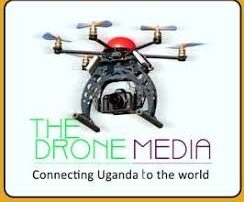Isma Olaxess arrested, but what does the law say?
Jajja Iculi popularly known as Isma Olaxess was today morning arrested and charged for offensive communication.
The local blogger, Isma has reportedly been on the run was ambushed and later arrested and his arrest has been confirmed by CID spokesperson Charles Twiine.
“He is being charged with the case of offensive communication and criminal libel which he committed with three Next Media journalists on Sanyuka TV in September,” Twiine said.
The three other journalists he is being charged with are Isaac Kayz Kawalya, Brian Wako, and Williams Marko who are currently on remand at Kitalya prison till 15th October.
We look into law and see if Isma has a case to answer. Section 25 of the Computer Misuse Act, 2011 provides “any person who willfully and repeatedly uses communication to disturb or attempts to disturb the peace, quiet or right of privacy of any person with no purpose of legitimate communication whether or not a conversation ensues commits a misdemeanor and is liable on the offense.
However, to prove offensive communication, the prosecution must show the following: The communication was willfully or stubbornly sent to the complainant. The communication was repeatedly sent to the complainant. The communication had no legitimate purpose.
Legal explanation
In an era of digital and social media, crimes have transitioned into the virtual or cyber space. To address these challenges, the Computer Misuse Act, 2011 was enacted to protect electronic and cyber space users from some crimes created or encountered online. (Assuming that you are aware of such terms as cyber space, virtual space or online for that matter.
The Computer Misuse Act 2011 creates a number of offenses and these include unauthorized access, access with intent to commit or facilitate commission of an offence, unauthorized modification of computer materials, unauthorized use or interception of computer services, unauthorized obstruction of use of computer, unauthorized disclosure of access code, unauthorized disclosure of information, electronic fraud, child pornography, cyber harassment, offensive communication, and cyber stalking.
In the heat of political, economic and social debates, which a number of Ugandans engage in on social media, some have fallen victims or been charged of the crimes highlighted in the Computer Misuse Act. As many people now use electronic means to communicate, it is important to understand what offensive communication is and how to engage on issues around it.
Under section 2 of the Computer Misuse Act, computer means an electronic, magnetic, optical, electrochemical or other data processing device or a group of such interconnected or related devices, performing logical, arithmetic or storage functions; and includes any data storage facility or communications facility directly related to or operating in conjunction with such a device or group of such interconnected or related devices. This definition thus covers the use of phones, tablets among others.

